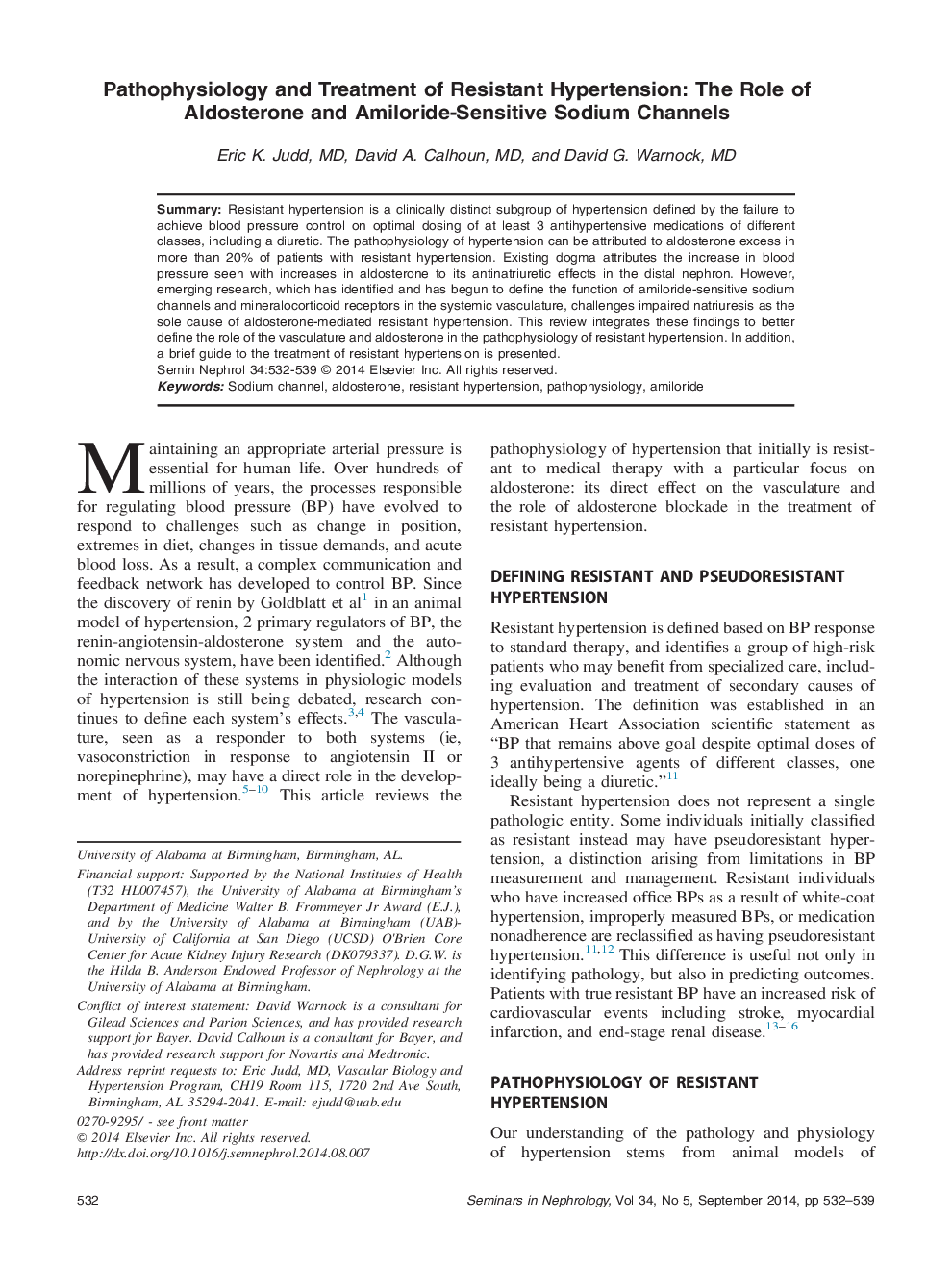| Article ID | Journal | Published Year | Pages | File Type |
|---|---|---|---|---|
| 3896361 | Seminars in Nephrology | 2014 | 8 Pages |
Abstract
Resistant hypertension is a clinically distinct subgroup of hypertension defined by the failure to achieve blood pressure control on optimal dosing of at least 3 antihypertensive medications of different classes, including a diuretic. The pathophysiology of hypertension can be attributed to aldosterone excess in more than 20% of patients with resistant hypertension. Existing dogma attributes the increase in blood pressure seen with increases in aldosterone to its antinatriuretic effects in the distal nephron. However, emerging research, which has identified and has begun to define the function of amiloride-sensitive sodium channels and mineralocorticoid receptors in the systemic vasculature, challenges impaired natriuresis as the sole cause of aldosterone-mediated resistant hypertension. This review integrates these findings to better define the role of the vasculature and aldosterone in the pathophysiology of resistant hypertension. In addition, a brief guide to the treatment of resistant hypertension is presented.
Related Topics
Health Sciences
Medicine and Dentistry
Nephrology
Authors
Eric K. MD, David A. MD, David G. MD,
